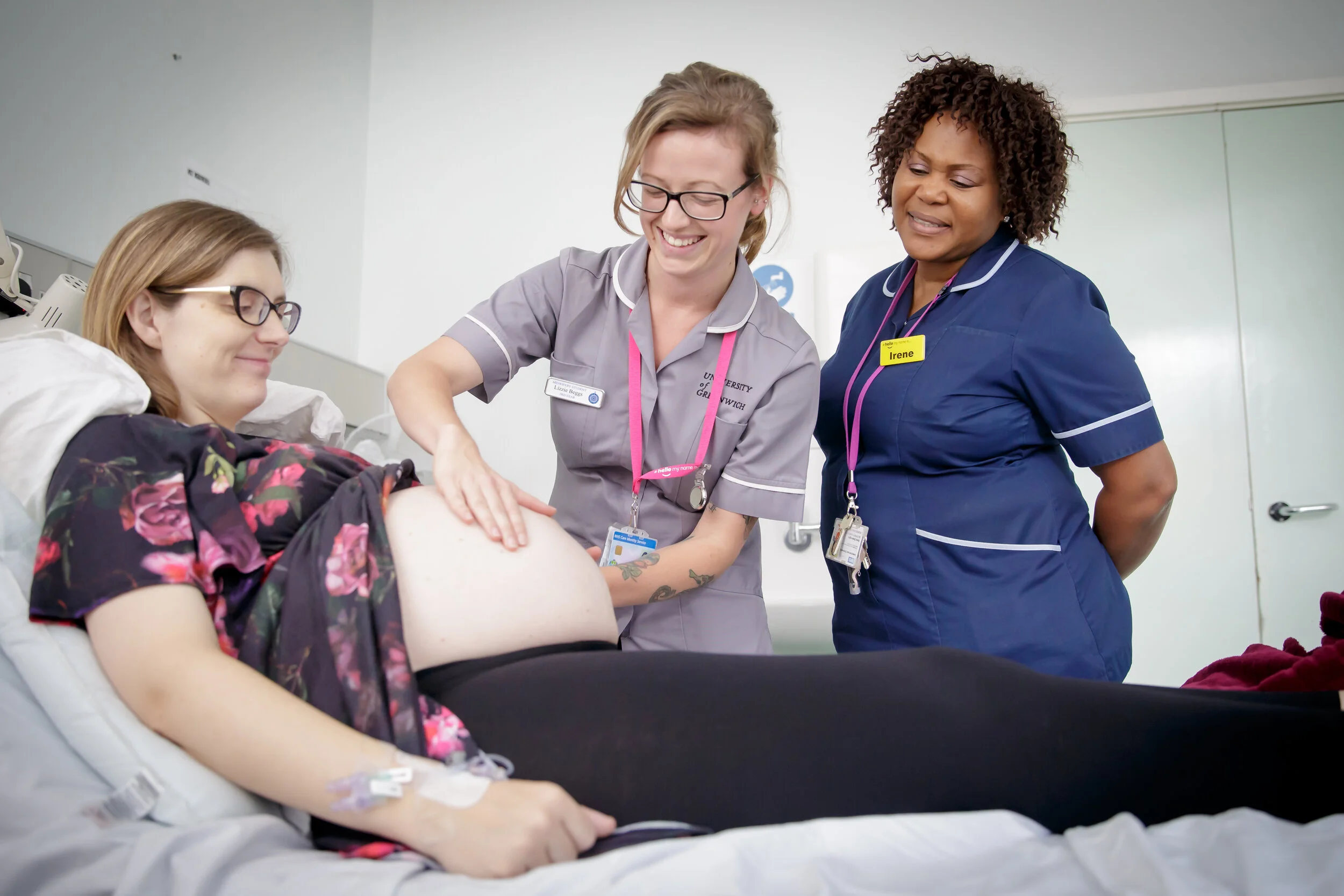Maternity safety: what does it mean?
Today is World Patient Safety Day and the theme is ‘Maternity safety’. The World Health Organisation (WHO) is urging for partners to, ‘Act now for safe and respectful childbirth’. Dr Jacqui Williams, Senior Midwifery Adviser (Education) at the Nursing and Midwifery Council (NMC), reflects on what this means in the day-to-day practice of maternity professionals.
TRIGGER WARNING: Please read this story with care. If you’re finding the content challenging, please give yourself permission to step away. If you need support click here, if you need urgent help click here.
The UK remains one of the safest countries in the world to have a baby. But there are still challenges. Having a baby can be the most joyous time for people, but it can also be the saddest time when things go wrong. The global statistics that the WHO is highlighting today are heartbreaking. They tell us that around 810 women die every day from preventable causes related to pregnancy and childbirth. Around 6,700 newborn babies die every day and around 2 million babies are stillborn every year. These worldwide statistics don’t tell the story of how outcomes can be very different depending on who you are or where you live. In the UK, maternity outcomes are poorer for black women, who are four times more likely than white women to die as a result of complications in pregnancy or birth. At the NMC, we have a role to play in safe and respectful childbirth. Our vision is excellent midwifery that improves people’s health and wellbeing, and to do that we promote and uphold the highest professional standards in midwifery.
A respectful, trusting partnership
Last year we introduced our new Future Midwife standards, which describe the knowledge and skills midwives need to possess to deliver the quality of care that people have a right to expect. We based the standards on the latest evidence of what’s needed to deliver safe and effective care. The language of our new standards emphasises the midwife’s essential role in caring for women and babies in a safe, effective and kind way. The standards also focus on the importance of:
public health and health promotion
human rights
mental health and wellbeing
continuity of care and carer, with care tailored to the needs, views and preferences of women and the needs of the baby.
What does all this mean for women, birthing people and their families? We recently launched a short animation to help people understand what they can expect from their midwife in the UK. It sets out how people can work in partnership with their midwives, on all aspects of their health and wellbeing, based on the foundation of our standards.
“Too often, tragic outcomes in maternity services reflect broader problems”
Professionals working together
While skilled midwives are essential, it’s important to remember they’re part of a wider maternity service. Too often, tragic outcomes in maternity services reflect broader problems. These can include poor leadership and culture, a stretched workforce, lack of continuing professional development, or failures to recognise and escalate concerns. Regulators like us need to collaborate with policy makers, employers and professionals to address these problems. Only by working together can we deliver sustainable improvements in maternity services. At the NMC, we’re determined to play our part in improving services by collaborating with others and promoting high standards of practise for the midwives on our register.
Learning from times when things go wrong
While we set and promote high standards, we also know that care will fall below those standards from time to time. Fortunately this is rare, and less than one per cent of the professionals on our register are involved in our fitness to practise investigations each year. We’ll always take action when needed, which can include removing midwives from our register in the most serious cases. But we believe in a culture of openness and learning that helps professionals to improve, and stops things from going wrong repeatedly. Matthew McClelland, our Executive Director of Strategy and Insight, has written more about this.
“We believe in a culture of openness and learning that helps professionals to improve”
The future midwife
On this World Patient Safety Day, I’ll be reflecting on what more we can do to act for safe and respectful childbirth. I’ll also be thinking about new students, who are the midwives of the future. We strive for our programmes to offer the right foundation, so they will go on to play their part in safe, effective and kind midwifery care for women, birthing people, babies and families.

